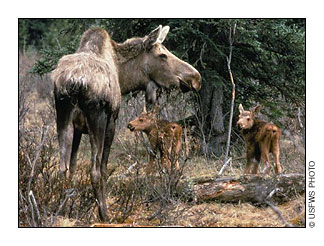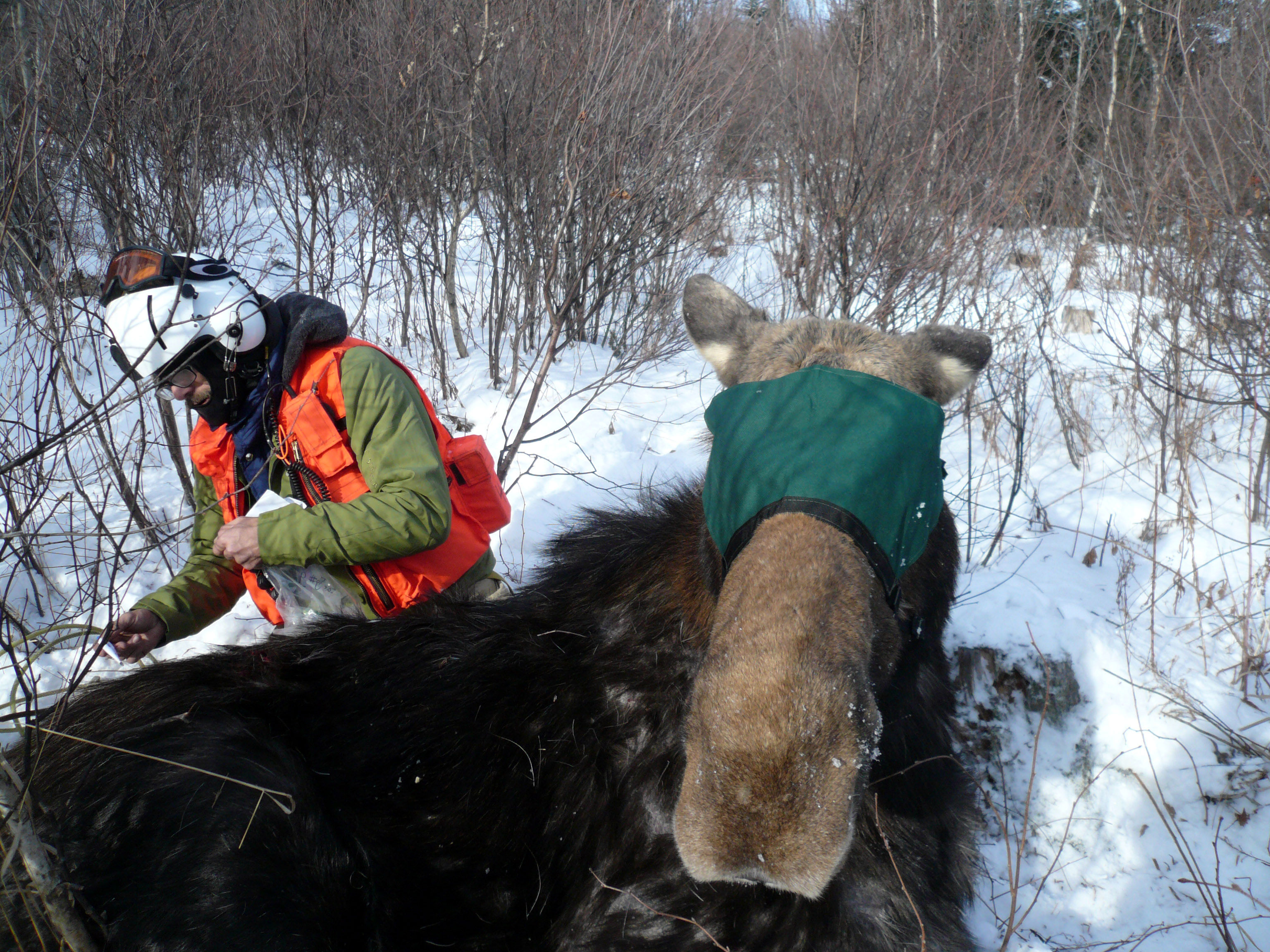 Between January 20 and February 2, 2014, the New Hampshire Department of Fish and Game will be collaring moose in the northern part of the state to study moose decline, a department press release says. The state has contracted with Aero Tech Inc. to collar moose for the study.
Between January 20 and February 2, 2014, the New Hampshire Department of Fish and Game will be collaring moose in the northern part of the state to study moose decline, a department press release says. The state has contracted with Aero Tech Inc. to collar moose for the study.
The moose population in New Hampshire has declined about 50 percent in the past 20 years. While that decline is worrisome, it is no where near the decline seen in Minnesota, where in some parts of the state the population has declined by 50 percent in a single year. New Hampshire still sets an annual moose hunting season.
“While regional moose populations are indeed facing some serious threats, moose are not on the verge of disappearing from the New Hampshire landscape, but they are declining,” says Kristine Rines, NH’s moose team leader, in the release.
The press release says: “The current study will span three years. Over a two-year period, radio collars will be placed on about 80 moose cows and calves. A graduate student from the University of New Hampshire (UNH), which is partnering with Fish and Game in the study, will track the moose.
“The collared animals will be tracked for four years and monitored for as long as the collars keep transmitting…. Researchers will be looking closely at whether the increase in moose mortality and reduction in reproductive success in New Hampshire is because of winter tick, or if additional disease and parasite problems or other causes of mortality are in evidence.”
“If this trend is driven primarily by winter tick, then every year will be different, because weather is such a big player” [in the number of winter ticks and in winter tick moose mortality], Rines says in the release.
Read the NH Department of Fish and Game press release, here.
Read and watch the WBZ-TV story, here.
Photo: Moose and calves, courtesy US Fish and Wildlife Service. This is the photo in the NH press release, although I previously got it from the source.
 A total of 43 moose were captured and collared during the first two weeks of a three year moose study in New Hampshire, a New Hampshire Fish and Game press release reports.The study hopes to find the causes of a decline in moose in the state. Biologists took blood samples from the collared moose, as well as hair samples, fecal samples and winter ticks.
A total of 43 moose were captured and collared during the first two weeks of a three year moose study in New Hampshire, a New Hampshire Fish and Game press release reports.The study hopes to find the causes of a decline in moose in the state. Biologists took blood samples from the collared moose, as well as hair samples, fecal samples and winter ticks.
 Between January 20 and February 2, 2014, the New Hampshire Department of Fish and Game will be collaring moose in the northern part of the state to study moose decline,
Between January 20 and February 2, 2014, the New Hampshire Department of Fish and Game will be collaring moose in the northern part of the state to study moose decline,